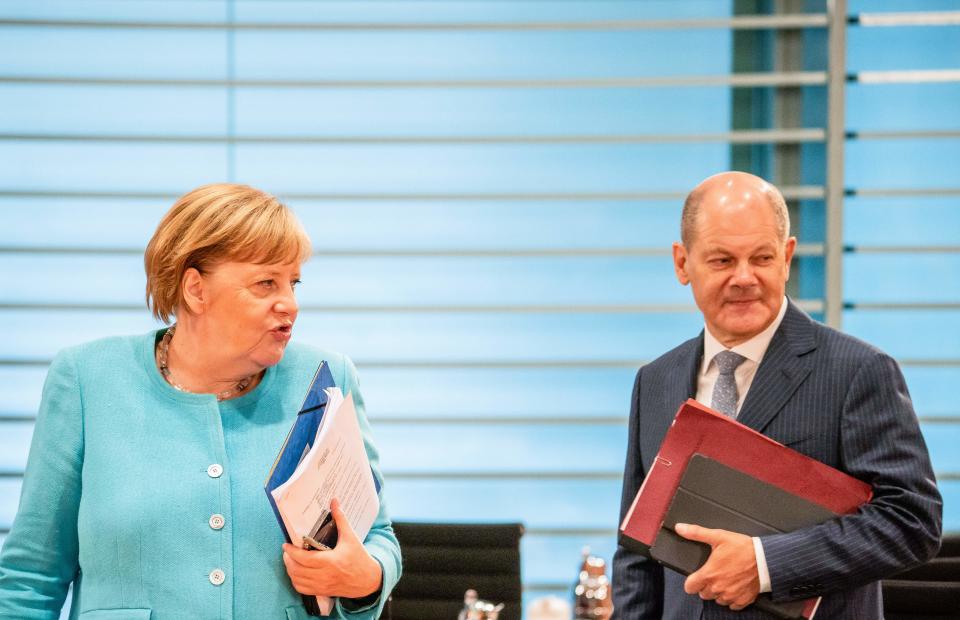Germany to take on more debt in 2021 to weather coronavirus fallout

Germany, well-known for its historical aversion to debt, is set to keep borrowing next year to help the economy survive the devastating fallout from the coronavirus pandemic.
The government in Berlin waived its constitutional rule against taking on no new debt earlier this year as the pandemic spread rapidly and lockdowns were imposed on all sectors of the economy and social life.
The government will borrow nearly €218bn (£195bn, $258bn) this year, but will need to take on additional debt next year too, meaning it cannot reinstate its Black Zero (“Schwarze Null”) debt-brake law for a second year running.
"Next year we will continue to be forced to suspend the debt rules and spend considerable funds to protect the health of citizens and stabilise the economy," Olaf Scholz, the finance minister and Angela Merkel’s vice-chancellor, said in an interview with Funke media group today.
READ MORE: German finance minister to run as chancellor candidate in 2021
The German economy contracted by just over 10% in the second quarter of this year, and GDP is forecast to shrink by more than 6% overall in 2020.
Scholz said in the interview that he expects the economy to rebound to pre-crisis levels by the end of 2021, or start of 2022.
As a whole, Berlin has earmarked over €1trn to help Europe’s largest economy recover from the pandemic. It unveiled a €130bn financial stimulus package in June.
Scholz had predicted in March that the government would not need to take out more loans in 2021. However, he pointed to the government’s efficient budget management in the years running up to the 2020 as reassurance that the huge new debt could be paid off.
The finance minister also noted that the government was doing everything it can to avoid a second lockdown. He is also pushing for an extension of the country’s short-time work programme, or Kurzarbeit as it is called, to a total of 24 months, until 2022.
READ MORE: Central bank expects ‘very strong’ German economic growth this summer
Germany, like many of its EU neighbours, is experiencing spikes in coronavirus cases not seen since April, sparking worries that a second lockdown stage could be inevitable.
Merkel on Thursday (20 August) urged EU countries to coordinate to avoid fresh lockdowns, saying: “We want to avoid closing borders again at any cost.”

 Yahoo Finance
Yahoo Finance 